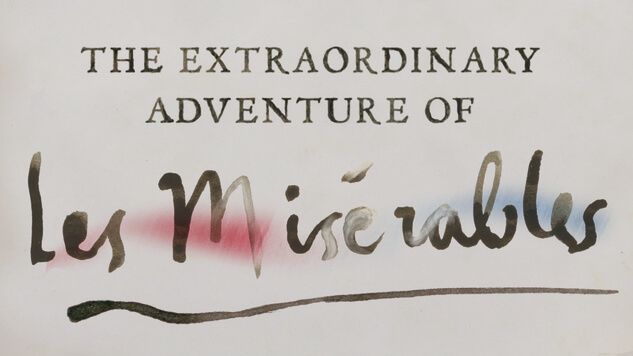David Bellos Explores Les Misérables‘ Dramatic History in The Novel of the Century

Not everybody loved Les Misérables, Victor Hugo’s classic novel, when it was first published. As David Bellos writes in his new book The Novel of the Century: The Extraordinary Adventure of Les Misérables: “It was also fortunate that the nasty gossip in the small world of French letters wasn’t loud enough to reach ears on an island cliff,” referring to Hugo’s exiled home on an island off the coast of Normandy, “for some of it would have raised welts on the thickest of skins.”
 It was 1862, and everybody in French letters had an opinion on the hefty novel. Charles Baudelaire drafted a favorable public review, only to turn around and tell his mother that Les Mis was “filthy and inept.” Gustave Flaubert wrote several letters damning the saga, including one declaiming the book as meant “for catholico-socialist shitheads and for the philosophico-evangelical ratpack.” Alexandre Dumas said reading it was like “swimming in mercury.” And Prosper Merimee said that the book’s popularity showed humans were dumber than apes.
It was 1862, and everybody in French letters had an opinion on the hefty novel. Charles Baudelaire drafted a favorable public review, only to turn around and tell his mother that Les Mis was “filthy and inept.” Gustave Flaubert wrote several letters damning the saga, including one declaiming the book as meant “for catholico-socialist shitheads and for the philosophico-evangelical ratpack.” Alexandre Dumas said reading it was like “swimming in mercury.” And Prosper Merimee said that the book’s popularity showed humans were dumber than apes.
But Bellos shows that Hugo’s big book, which has remained profitable since its release, could take the blow. It quickly gained international popularity, and Confederate soldiers even shared editions on the battlefield:
-

-

-

-

-

-

-

-

-

-

-

-

-

-

-

-

-

-

-

-

-

-

-

-

-

-

-

-

-

-

-

-

-

-

-

-

-

-

-

-








































